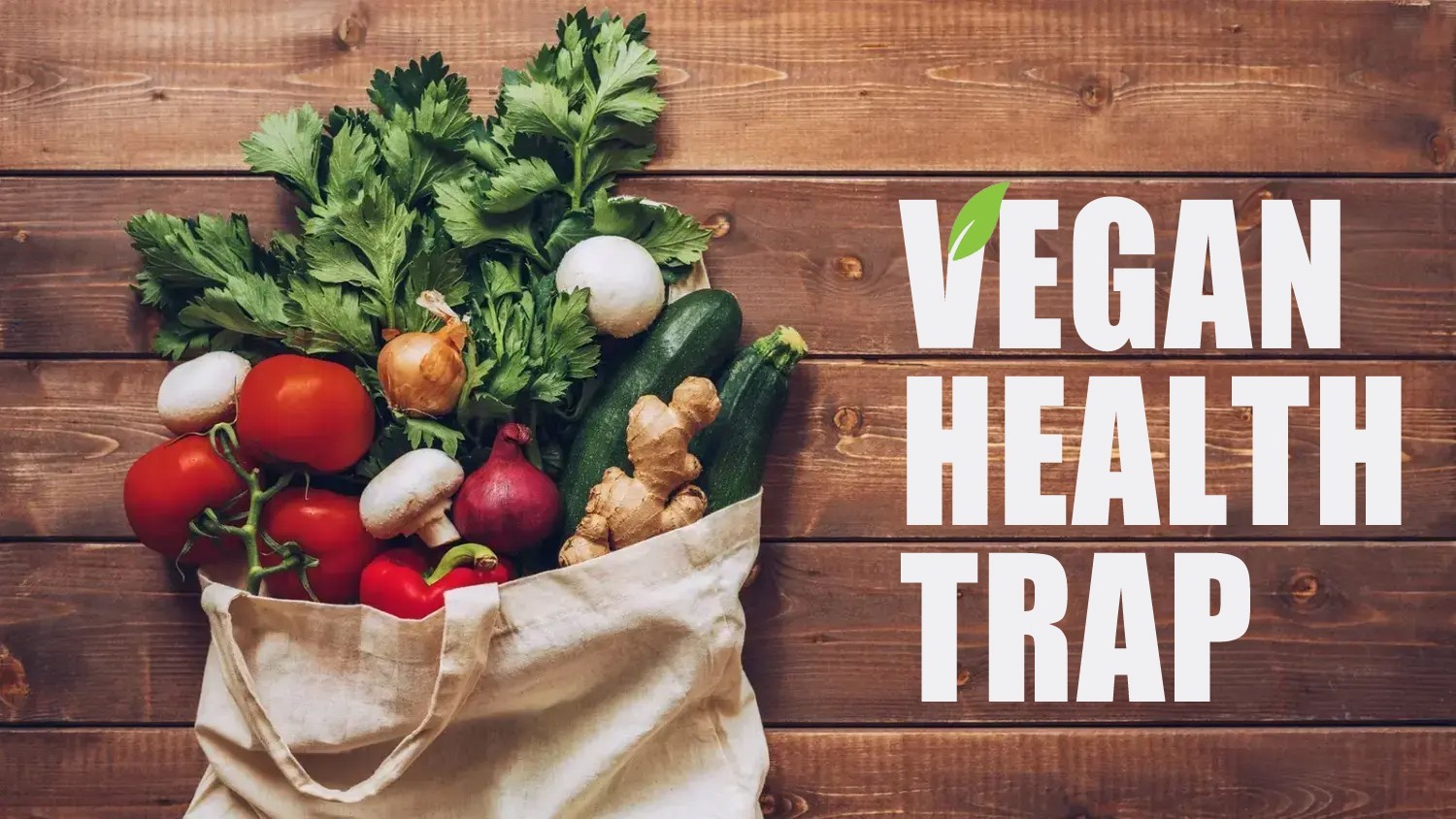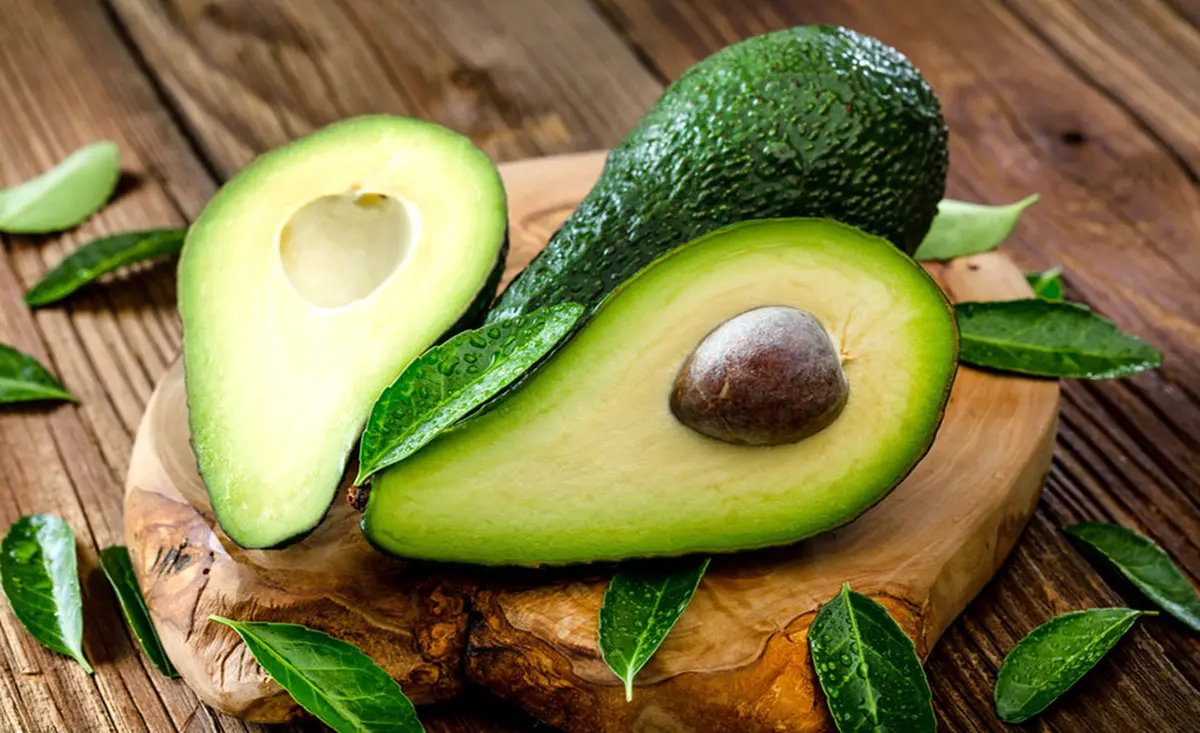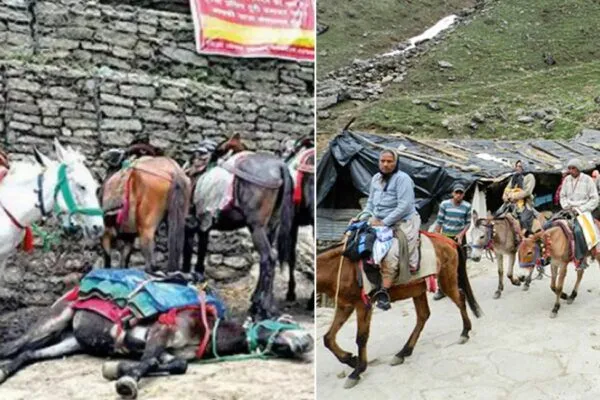Veganism Harming the Planet – Fact or Fiction
With ditching of animal-based products becoming the new cool, veganism has gained momentum - but it isn’t always the healthy option, especially for the environment
Veganism is the practice of refraining from the use of animal products, especially in diet, which includes ditching meat, eggs, and dairy products. Veganism has been on a rise for the past couple of years with people opting it for various health reasons along with the belief that cutting out meat and dairy products will reduce the impact on the environment. While some call it an ethical lifestyle, some have labeled it a “vegan health trap.” But how true is that? Let’s find out.
People who opt for a vegan lifestyle, maintain that veganism not only supports physical health but also the health of the planet. Awkwardly, this is not correct. If the planet went meat-free, the biodiversity would be endangered by fanatically increased land use to meet the demand for various foods.
According to Mike Archer, a professor at the University of New South Wales, vegans tend to do more harm to animals by taking away plants. Growing a plantation takes more time and labor than animal husbandry.

Let’s understand it with the example of Australia, where producing wheat and other grains does 25 times more environmental damage and animal cruelty than farming red meat. To meet the grain demands, agricultural expansion results in clearing the native vegetation, consequently, killing thousands of native animals and plants amid habitat and vegetation loss.
Moreover, the vegan foods that are transported from one country to another generate more emissions than the meat industry. This simply means that easting lamb chops that come from a farm a few miles down the road are much more environmental-friendly that easting an avocado imported from the other side of the world.
What is a vegan diet?
Veganism is a practice that abstains from the use of animal products, especially in the diet. Dietary vegans refrain from eating meat, eggs, dairy products and any other animal-derived substances. It essentially contains vegetables, plant-based dairy substitutes, lentils, etc.
The term ‘vegan’ was coined by Donald Watson and his wife Dorothy Morgan in 1944. Watson spent much of his youth on his uncle’s farm in Yorkshire, where he was horrified to learn that the animals breeding at the farm will be slaughtered for meat consumption.

Image: VegNews
In 1924, he adopted a vegetarian lifestyle at the age of 14. Watson’s diet mostly comprised nuts, apples, dried fruit and vegetables, and sometimes lentils. Two decades later, he coined the word vegan and founded the UK Vegan Society.
Unfortunately, with today’s factory-produced foods, substitute foods might be worse for our health than their meat and dairy counterparts. Various studies and research over the past few years have indicated that the benefits of a vegan diet are inconsistent. Plant-based diets do not provide benefits over regular diets that include meat and dairy.
Vegan Health Trap
The premise of veganism, what most people commonly believe it to be, is essentially flawed. It is thought that being a vegan will offer health benefits and reduce carbon footprint to protect the environment. While this is true to some extent, veganism is not about the health benefits, as it is an advocate of saving the animals from cruelty and abuse that they undergo for human consumption.
Many experts describe the vegan trap as a naturally occurring phenomenon where the first few weeks of a vegan diet feel great, but even as the health begins to decline, people stick to the diet because of how good they felt in the start of the diet. Vegan trap work on the same psychological mechanism as drug addiction.
There is another issue with this practice. Let’s assume, every human on the planet becomes a vegan, not only it deprives of some healthy nutrients that can only be achieved through animal-based foods, it will also create an imbalance in the biodiversity that is necessary to maintain a healthy ecosystem. Moreover, veganism will disrupt land use, leading to excessive agricultural expansion, which will ultimately destroy the forests and the planet.
Scientifically, by opting for a vegan or vegetarian diet, you can certainly reduce your carbon footprint. However, it may come as a surprise to you that a vegan diet can also deteriorate your health and some plant-based products can wreak havoc on the environment by increasing emissions.
How can veganism harm human health and the environment?
Food production for nearly 8 billion people requires immense resources such as land and water. The current food system generates a quarter of all greenhouse gas emissions, contributing hugely to climate change. Meat production accounts for 60 percent of all emissions out of all the food produced worldwide.
According to Shane Moffat, Head of Nature and Food Campaign at Greenpeace Canada;
If we do nothing, then by 2050 emissions from the food system will represent more than half of the total global emissions associated with human activities.
Even if we remove the animal-based foods out of the equation, producing food for an ever-increasing population will trigger massive agricultural expansion, leading to deforestation. Mofatt believes that forest fires in the Amazon Rainforest are no accident occurrences.
The rainforest has long been subjected to forests being cleared to make way for industrial meat production, commercial agricultural expansion, logging and mining, and the wildfires are the repercussions of those anthropogenic activities.

Image: Ueslei Marcelino/Reuters
It has been noted that a mostly plant-based diet, with no or reduced consumption of meat and dairy, can be more environmentally stable in terms of emissions, water, and energy consumption in comparison to animal-based food products. That being said, there are many different factors to consider when amounting the environmental impact of food.
Various plant-based foods can cause more or equal damage to the environment as the meat and dairy industry. Moreover, increased demand for vegan foods has given rise to expansion in agricultural land, consequently triggering vast deforestation incidents across the world.
It’s not just environmental health that is deeply impacted by these food products. According to American entrepreneur and lifestyle guru Dave Asprey, a long-term commitment to vegan diets can have an adverse effect on your health. When you switch from an omnivorous diet to vegetarian foods, you feel more energetic, but over time, you are depriving your body of essential nutrients on a subcellular level.
Founder of Bulletproof and New York Times bestselling author, Asprey adopted a vegan diet for a few years. However, his body began to deteriorate and his health suffered immensely. It was only after he gave up veganism that his health restored. Since then, he has opted for locally-farmed meat and dairy and vegetables.
Flaws of Veganism as per Studies
Many vegan foods are rich in carbohydrate-binding proteins known as lectins. Lectins are found in all plants, but raw legumes (beans, lentils, peas, soybeans, peanuts) and whole grains like wheat contain the highest amounts of them, which can lead to many diseases as studies have found.
One study indicates that vegetarian diets can lead to deteriorated mental health in men. Apparently, vegetarian men have more depressive symptoms with nutritional deficiency.
Another study finds that vegans have a higher deficiency of vitamin B(12), which is commonly fulfilled by consumption of foods such as beef, chicken, fish, milk, yogurt, cheese and eggs, etc. Vitamin B(12) is crucial for nerve tissue health, brain function and the production of red blood cells. Deficiency of this vitamin can obstruct the growth of these abovementioned body parts, leading to severe health conditions.
Moreover, various people have differing opinions on whether one should stick to a vegan diet for infants, pregnant women and children. Many studies have said that as the human body requires more nutrition than ever in these stages, it cannot be achieved through vegan diets.
Ethicality of Veganism
There has been a long occurring debate over the ethicality of vegan and omnivorous diets. Determining the environmental impact of foods can be complex and multi-facet affair. While one can determine the emissions and animal treatment, there are multitudes of factors that affect the ethicality of one type of food or the other.
oh please. migrant farmworkers suffer and die in vegetable and fruit fields. quinoa and soy farming displaces indigenous folks and makes foods central to their diet too expensive. almond farming increases drought. there is no ethical consumption under capitalism, anywhere. https://t.co/CEbpvuJSSR
— Ra’il I’Nasah Kiam (@so_treu) November 14, 2019
For example, the consumption of avocados has increased immensely over the past few years as veganism came into the limelight. Its consumption increased 443 percent from 1995 to 2015, which resulted in farmers expanding their land, often through deforestation.
Avocados are grown as a single-crop, which can strip the land of minerals leading to biodiversity loss, similar to indigo production. Moreover, avocado farming utilizes about 280.5 and 366.4 liters of water just to produce one pound of fruit.

Image: youmatter
Soy and almond also lead to a heavy environmental loss in forms of deforestation and high water demands, respectively. Did you know that it takes over 4 liters of water to grow a single almond?
Besides, importing and exporting various endemic plant-based foods can further contribute to emissions that equal to the locally-sourced meats. So, who is to decide which one of them is more ethical? Aside from the environmental cost, plant-based food industry profoundly impacts laborers and animals.
Our Take on Veganism
The fact remains that the world lacks enough young, interested farmers, arable land, or groundwater supply to convert every human being to truly sustainable plant-based diets. Furthermore, with every body type requiring different kinds of nutrition, it is quite impossible for each and every one of us to switch to a strict vegan or vegetarian diets.
Our advice, know your nutrition requirements before making a switch between your dietary plans and go as eco-friendly as possible within your affordability.


